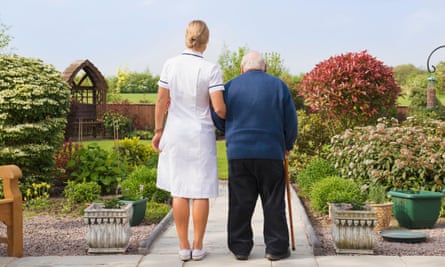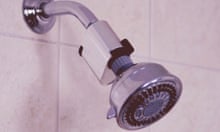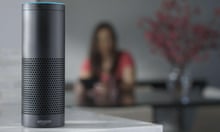By our habits, shall ye know us. Every home has its rituals, its small daily ceremonies, and none more so perhaps than the homes of the elderly; the kettle always boiled for visitors regardless of whether they want tea, the radio religiously activated for The Archers, the dog put out last thing at night.
When you’re alone, routine is comforting, which is why the old and the housebound cleave to the familiar: lunch at one, bed after News at Ten. It’s easy for the young to mock. But what if that boring, predictable routine could one day be a lifesaver?
This week one Englishman’s blow-by-blow account of his epic 11-hour struggle to make a cup of tea using his fancy new Wi-Fi-enabled kettle went viral, at least partly thanks to goggle-eyed amazement that anyone would even want to do such a thing. Who needs to be able to switch on their kettle remotely via their mobile phone, for god’s sake? If you’re really that desperate for a cup of tea in the morning without the bother of getting out of bed, Teasmade had it nailed decades ago.
Yet the so-called “internet of things” – the current mania for connecting smart white goods to the internet, so that you can turn the kettle on via your phone as you’re walking downstairs, or rely on your printer ordering its own ink when it runs out – is nowhere near as pointless as it sounds.
It may look suspiciously as if young designers are simply inventing apps to replace things their mums used to do for them, from calling cabs to delivering pizza. But if a so-called “smart home” can look after a lazy 20-something who can’t be bothered getting off the sofa to switch on the kettle, what could it do for people who actually need help? What if your house could actually look after you in your old age, not in the old-fashioned sense of providing a nest egg for retirement, but in infinitely more practical ways?
This autumn, an app called Howz is due to launch in the UK, offering to monitor use of everyday electrical devices in an elderly person’s home – lights going on and off, kettles boiling – and send alerts to their children if it notices an unusual pattern of behaviour that might indicate they had fallen ill.
It joins competitors already on the market such as Canary, whose sensors monitor light, temperature and movement from room to room so that if the elderly person falls and can’t get up, or doesn’t put the heating on when it’s freezing, or generally doesn’t seem to be behaving as they normally would, then the system can trigger a warning. The kettle not boiled in a smart home essentially becomes Sherlock Holmes’s dog that didn’t bark, a potentially vital clue that all is not as it should be.

And if you think it all sounds ridiculously far-fetched, I heard about Howz in a speech made on the fringes of Conservative party conference by an executive from good old-fashioned John Lewis, which is increasingly interested in what smart home technology could do for older people. (Howz was incubated by a specialist tech investment fund working with JLab, the store’s initiative for growing tech start-ups.) It may not exactly be as hot a name as some of those in Silicon Valley, but then perhaps it takes a company as steady and resolutely middle England as John Lewis to see that you can do more with the internet of things than make gadgets for people with more money than sense.
For some older people, the idea of being stalked by their own white goods will clearly feel creepy and Big Brotherish, even though there are no surveillance cameras involved (unlike the nannycams marketed at over-anxious parents, the apps merely record data, not video images). Nobody wants to feel spied on from afar, and even information that sounds dry as dust can turn out to be surprisingly intimate. Does an elderly man who is getting up repeatedly in the night to go to the loo really want a nagging phone call from the kids, demanding that he go and get tested for prostate cancer?
It’s easy to see the potential for friction too between anxious grownup children who want the house wired up to watch over a parent they feel is getting distinctly doddery, and older people who are either offended at the very suggestion – or hurt that their children would rather monitor them from a distance than drop by more often, or even ask them to move in. For every family who finds it reassuring to know someone’s tracking Granny on their phones, there will be one who finds the whole idea horribly cold and impersonal, a sop to the consciences of adult children too tied up in their own lives to visit.
Nor, of course, is this an answer in itself to the yawning gap in social care funding highlighted once again this week by a report from watchdog the Care Quality Commission, arguing adult care services are now “at tipping point” and threatening to take the NHS down with them. It’s going to take more than fancy apps to tackle the fact that by 2030 there will be half as many pensioners again as there were in 2010, all perilously reliant on a system that’s already unravelling at the seams. (And that’s before the nasty surprise lurking up Brexit’s sleeve: the care sector currently relies heavily on cheap immigrant labour, of the kind many older people have just voted to keep out.)
But if what most people want is to be able to stay in their own homes for as long as possible, then it’s sheer madness not to use every weapon at our disposal. Why not bend technology to socially useful ends? Why not put the best minds in Silicon Valley to work not just on making toys for other 20-somethings, but also on reinventing life for their grandparents?
And yes, of course it would help if families could just pick up the slack and look after their elderly relatives themselves. All this would be easier in a world where everyone had granny annexes and saintly reserves of patience – or else lived round the corner from their parents, and preferably didn’t work, all the better to pop in twice a day and check they hadn’t fallen down the stairs.
But that’s not the world in which we live, and there is little prospect of going back to it. So instead we’re blundering on with our eyes shut – because nobody ever wants to think about getting old and vulnerable, and reliant on a harassed care worker with 15 minutes to get you fed or bathed or dressed but not all three – into a world where the state simply can’t guarantee to look after older people in any half-decent manner and nor in many cases can their children.
It’s true that technology sounds like a horribly clinical answer to what is at root a very personal dilemma. But we are all, in the end, creatures of habit. There are surely few things more human than learning to recognise that quality in ourselves, and use it for our own protection.







